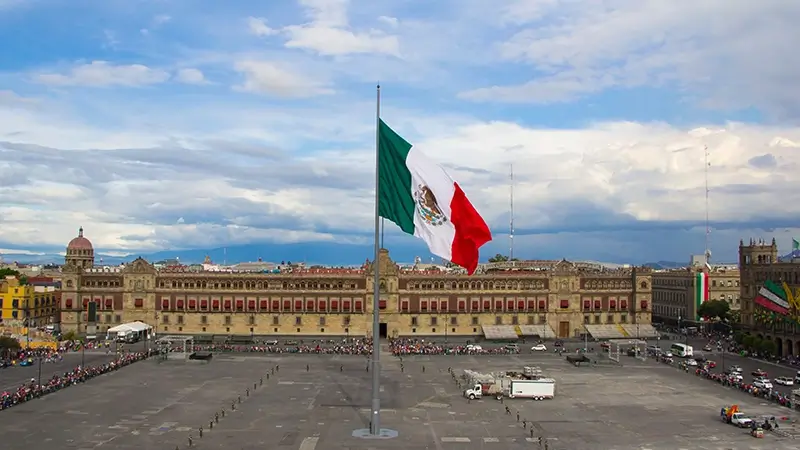How to Open a Business in Mexico for Foreigners
Setting up a business in Mexico requires meeting certain legal and administrative requirements. This process can be daunting for those unfamiliar...
3 min read
Mike Morroni Apr 15, 2025 10:59:18 AM

Written by Mike Morroni.
When all you see around you is fear and doom, someone else spots the opportunity hidden in chaos and reaps huge benefits. With the right partner, that someone could be you and your company. This version may not be final, but tariffs are likely to remain in many cases, and it's time now to come up with an offensive plan for success.
The recently announced tariff system under the Trump administration is already causing significant changes in global markets. While some are preparing for the potential negative effects, others are looking to adapt. Whether you are an importer, exporter, or a business that operates on the ground in many countries around the world, this policy shift could serve as either a setback or an opportunity to rethink your strategy and strengthen your operations.
| Key Points |
|
In this article, we'll break down what the new tariffs mean, who they affect, and how your business can stay ahead by making smart, forward-thinking moves in uncertain times.
The new tariff measures started with a base tariff of 10% on all imported goods, with specific tariffs of 20% for products from the European Union, 34% for China, and 46% for Vietnam. Now they've been adjusted up for China and temporarily down for everyone else, but the end result is likely somewhere in between.
It's easy to feel overwhelmed when chaos dominates the situation, but those prepared and supported by the right partners can find an opportunity in the storm.
In uncertain times, flexibility is key. Start by getting the facts about the process for exiting countries you are in and how to enter new ones that may have better tariff and trade agreements, understanding key market entry and exit points, and negotiating terms with your providers that protect your business from the volatility of long-term commitments. If your partners who provide you services in international locations push for rigid 3–5-year deals or only can support you in a limited number of locations, it may be time to find ones who can adapt and move with you.
Even if the markets stay down or in flux, this will present opportunities for those with the ambition and liquidity to take action. For instance, slow economic cycles of times or turmoil often create favorable conditions for strategic acquisitions, especially carve-outs, where businesses purchase assets or divisions from larger companies that may be looking to exit certain assets or divisions. To execute this internationally, you'll need the ability to launch operations in new countries quickly and efficiently to take on assets and employees before you close the deal.
Companies headquartered outside the U.S. are already exploring new strategies—and Latin America is becoming a hotspot. As the global trade environment shifts, now is the time to assess your global production and market-entry plans.
In a time of global uncertainty, the most resilient companies will be those that stay agile, informed, and proactive. Tariffs may change, and markets may shift, but the opportunity to adapt and grow is always within reach with the right guidance.
With our firm's assistance, businesses confidently navigate international complexities by leveraging insights, infrastructure, and local expertise to respond swiftly to global changes. Whether you are assessing new markets, restructuring your operations, or preparing for future challenges, we are here to help you transform disruptions into opportunities.
Contact our team today!

Setting up a business in Mexico requires meeting certain legal and administrative requirements. This process can be daunting for those unfamiliar...

Opening a Business in Canada requires a clear understanding of the country’s legal, tax, and regulatory environment to ensure a smooth market entry....

A registered office address is more than just a mandatory requirement; it’s a cornerstone of your business’s legal and professional framework....